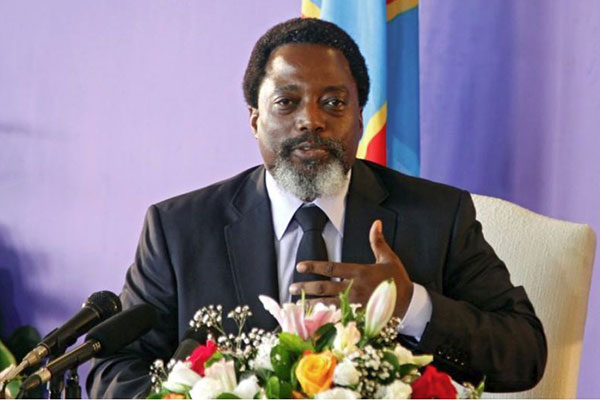Pic: Democratic Republic of Congo’s President Joseph Kabila. By Reuters
The country’s Prime Minister Bruno Tshibala has said elections will take place as scheduled.
An election in the Democratic Republic of Congo to replace President Joseph Kabila remains on course for late December, the central African country’s Prime Minister, Bruno Tshibala, has said.
“I committed in front of our country’s representatives in May last year to my mission which was to bring the Congolese people to elections this year, and I confirm that in December this year the Congolese people will be brought to the ballot boxes,” Tshibala told Reuters in an interview late on Wednesday.
Repeated stalling of the election has raised tensions across the vast central African country, triggering street protests and encouraging armed rebellions.
Kabila was due to step down when his mandate expired at the end of 2016 but has so far refused to do so.
“There were setbacks which caused this delay,” said Tshibala. “But this time our course is set for elections and they will take place on December 23.”
Voting machines
Tshibala, a former leading member of Congo’s main opposition coalition, was appointed by Kabila just under a year ago to head a transitional ‘unity’ government tasked with organising the election. He is expected to be the opposition candidate in the election.
When asked about technical problems experienced by voting machines during recent testing in the capital Kinshasa, Tshibala said: “Machines are a great revolution,” adding they would help the election to run smoothly and in record time.
“We have taken all the precautions with the electoral commission for it to go well. It’s true that it’s a vast country… but that’s exactly why the voting machines will help improve the process.”Opponents of current president Kabila, who has ruled Congo since his father’s assassination in 2001, suspect he intends to repeatedly delay elections until he can organise a referendum to let himself stand for a third term, as his counterparts in neighbouring Congo Republic and Rwanda have done.Kabila denies those charges, saying the election delays are due to challenges registering millions of voters and budgetary constraints.
